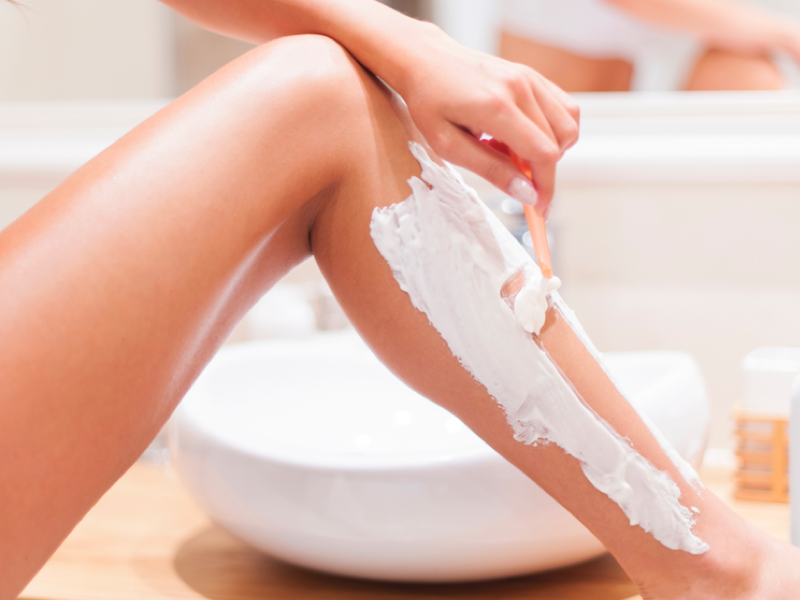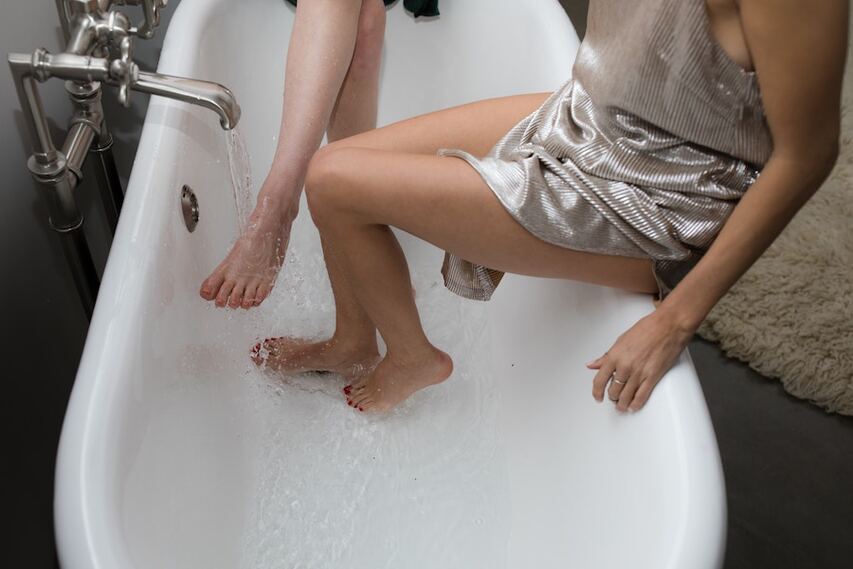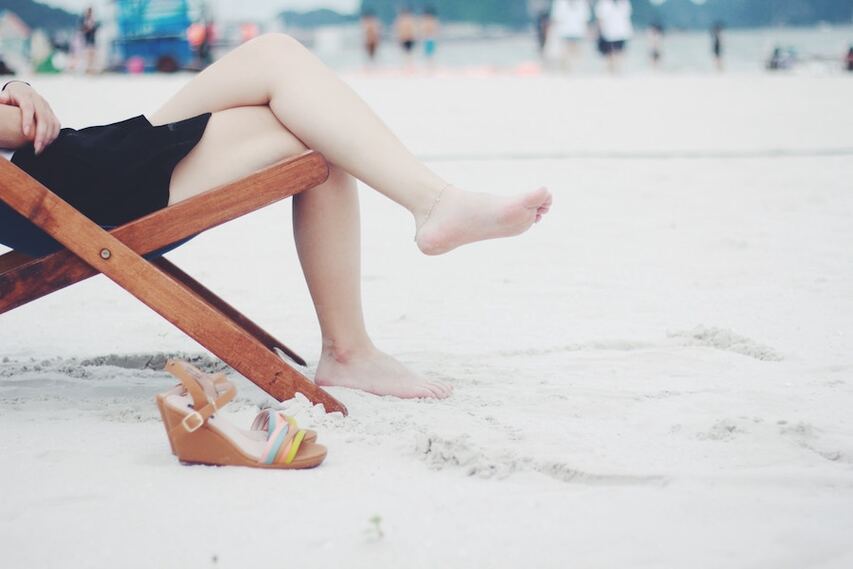How to get rid of razor bumps on the legs

Raise your hand if you’ve ever been personally victimized by razor bumps—those red, irritating bumps that appear on legs, armpits, and the bikini area, sabotaging our quest for smooth skin. Almost everyone (except a lucky few) has been there. So, what exactly are razor bumps, and how can you prevent them? Check out our dermatologist-approved tips below.
What Are Razor Bumps?
Razor bumps, also known as folliculitis, are pimple-like lesions caused by inflammation of the hair follicle. When hair follicles become irritated, they can turn into red or dark brown bumps, depending on your skin tone. Razor bumps are more common among people with sensitive skin and those with thicker, curly hair, such as in the bikini zone. While they often heal on their own, they can reappear with each shave. Fortunately, there are ways to help prevent them.
Razor Bumps vs. Razor Burn
Razor bumps and razor burn are often confused but differ significantly:
- Razor Burn: Appears immediately after shaving due to dry skin or a dull razor, leaving redness across the shaved area.
- Razor Bumps: Appear days after shaving as red or brown spots from irritated follicles.

Tips to Prevent Razor Bumps
The best way to avoid razor bumps is by creating a gentle shaving routine that minimizes skin trauma. Here’s how:
-
Shave at Night: Morning shaving can irritate the skin as the legs swell slightly overnight, causing hair to retract into follicles. Shaving later in the day is ideal.
-
Prep Your Skin: Shave after a warm shower or bath to soften hair and open pores, making for an easier, smoother shave.
-
Skip Pre-Shave Exfoliation: Shaving already exfoliates skin gently. Over-exfoliating before or after can lead to irritation.
-
Use Shaving Cream for Sensitive Skin: Avoid alcohol-based shaving foams, which dry out the skin. Instead, use a shaving cream with anti-inflammatory ingredients for a smoother, gentler shave.
-
Use a Sharp Razor: Dull razors pull on hair, causing micro-cuts that are prone to infection. Replace blades every 4-5 uses, and rinse well after each shave.
-
Shave with the Grain: Shave in the direction your hair grows to reduce irritation and prevent ingrown hairs.
-
Moisturize Post-Shave: After shaving, pat skin dry and apply an oil-free, alcohol-free moisturizer to hydrate and protect.
-
Avoid Picking or Popping: Resist the urge to pick at ingrown hairs, as this can worsen inflammation and lead to dark spots or infection.
-
Avoid DIY Home Remedies: Skip kitchen remedies like lemon juice or tea tree oil, as they can cause burns or irritation. Instead, stick to clinically tested products designed for razor bump prevention.
-
Use Hydrocortisone for Severe Bumps: For inflamed or persistent razor bumps, try a hydrocortisone cream to reduce inflammation. If symptoms persist after a few days, consult a dermatologist for further care.
By following these steps, you can significantly reduce razor bumps and enjoy smoother, healthier skin.
To find the right acne treatments for your unique skin, take the free skin assessment by clicking here.





